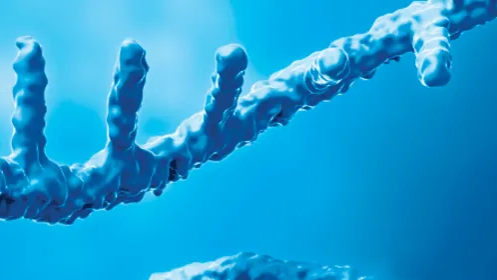Large Ribonucleic Acids (RNAs) including messenger RNAs (mRNAs) are promising candidates for therapeutic treatment and vaccines, having generated great interest in the field of vaccination as a safe and efficient alternative to traditional live virus or protein-based vaccines. Unlike traditional vaccines, mRNA can be engineered to carry specific genetic information, which upon delivery into cells and using host cell translational machinery, can result in generation of a desired antigen in vivo. While the process relies on the biological machinery naturally contained in the body, mRNA is susceptible to degradation during preparation, processing, formulation and long-term storage conditions. Furthermore, once introduced into the host, it is subject to many biological processes that can degrade it upon delivery. Read More >




